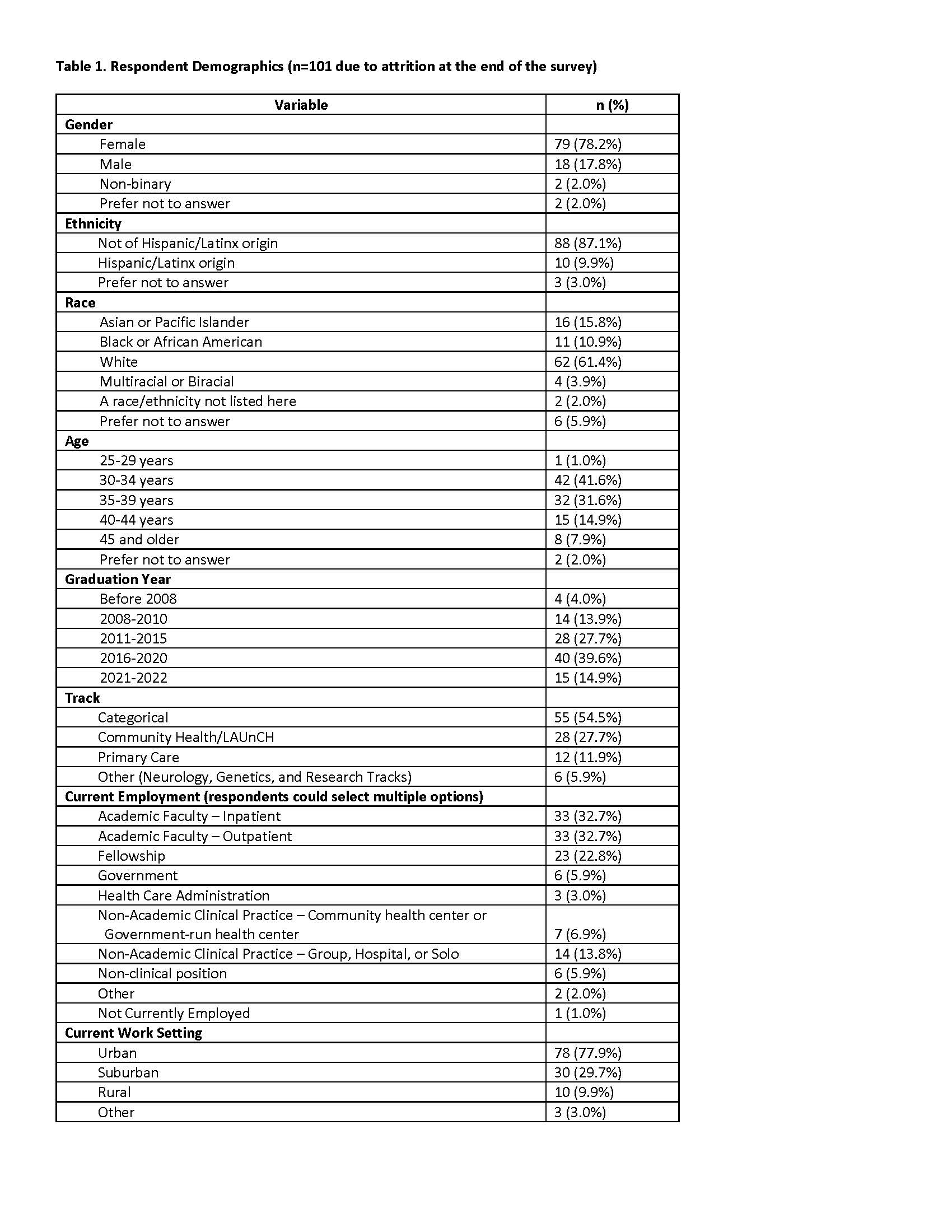Medical Education: Resident
Medical Education 10: Resident 3
534 - Alumni Advocacy Analysis: Creation and Dissemination of a Survey on Graduates’ Career Choices in Advocacy, Community Health, and Health Equity
Publication Number: 534.324

Olanrewaju Falusi, MD, MEd (she/her/hers)
Medical Director of Advocacy Education; Associate Program Director
Children's National Hospital
Washington, District of Columbia, United States
Presenting Author(s)
Background:
Pediatric residency programs are increasingly expected to train learners to consider the health of the community, advocate for policies to improve child health, and address health disparities. In response, our residency program added dedicated advocacy education for all pediatric residents, and in 2003 created an advocacy-focused track. To date, the impact of the program’s advocacy curriculum on graduates’ career choices and attitudes has not been formally assessed.
Objective: To determine pediatric residency graduates’ attitudes and activities in 3 domains: community health, advocacy, and health equity.
Design/Methods:
An inventory of skills and activities expected of residency graduates was devised from a literature search, the American Academy of Pediatrics Community Pediatrics Training Initiative (CPTI) Advocacy Portfolio, and the American Board of Pediatrics Entrustable Professional Activity #14. From this, a survey was created and iteratively revised after expert reviews and pilot testing, then emailed via REDCap to graduates of our residency program from the prior 10 years.
Results:
154 (44%) of 350 eligible alumni completed the survey; demographics noted in Table 1. On a 5-point Likert-type scale, 49.7% of respondents reported that it was “quite” or “extremely” important to work in community health; 37.5% and 57.0% selected the same response options for advocacy and health equity, respectively (Table 2). Responses for the 3 domains were highest for graduates of the advocacy track (82.1%, 67.8%, and 60.0%, respectively) compared with graduates of other tracks.
Overall, 55.4% of respondents reported that they incorporate community health into their careers, 52.5% incorporate advocacy, and 71.3% incorporate health equity. Incorporation rates were highest among the advocacy track (85.7%, 67.9%, and 89.3%, respectively) compared with other tracks (Table 3).
Among the CPTI advocacy activities, graduates across all tracks were most likely to work on improving quality and accessibility of healthcare services (68.6%), work with community-based organizations to improve the health and well-being of children and families (54.3%), use media to advocate for children (49.5%), and mentor trainees or colleagues in advocacy (49.5%).
Conclusion(s):
This graduate survey may be valuable to residency programs seeking to evaluate the outcomes of their advocacy training. Moreover, our advocacy track appears to be meeting the goals of training physicians with continued engagement in community health, advocacy, and health equity. Next steps include additional analysis and survey dissemination to other training programs.
.jpg)
.jpg)
